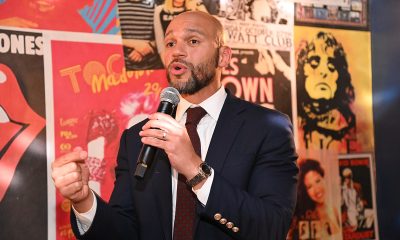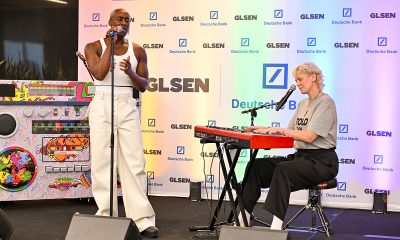Local
LGBT witnesses back D.C. anti-bullying bills
ACLU says legislation could violate students’ civil liberties

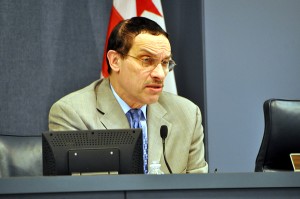
D.C. Mayor-elect Vincent Gray presided over a hearing this week on two bills to address bullying and harassment in public schools. (Washington Blade file photo by Michael Key)
Nine witnesses representing the LGBT community expressed strong support for two bills aimed at prohibiting bullying in D.C. schools, public libraries and parks during a City Council hearing this week.
The LGBT witnesses, including two gay and one transgender student, gave examples of anti-LGBT bullying and harassment in the D.C. public school system. They joined other witnesses in noting that existing public school policies pertaining to bullying were not strong enough to adequately address the problem.
“The District of Columbia has been a pioneer on issues such as nondiscrimination in schools and yet is one of only a handful of jurisdictions in this country without an anti-bullying law,” said Alison Gill, a public policy associate with the Gay, Lesbian & Straight Education Network (GLSEN).
Gill and other witnesses pointed to the 2009 D.C. Youth Risk Behavior Survey, a federally funded study that includes data on lesbian, gay, and bisexual youth. Among other things, the study found that 29 percent of LGB teens in the city’s middle schools and high schools have attempted suicide. The study did not collect data on transgender students.
Anti-gay bullying and harassment are believed to have played a large role in prompting the youth to consider suicide, Gill and other witnesses said.
D.C. Mayor-elect Vincent Gray presided over the hearing in his current role as City Council Chair and chair of the Council’s Committee of the Whole. He takes office as mayor on Jan. 2.
The Committee of the Whole and the Committee on Libraries, Parks and Recreation, which is chaired by Council member Harry Thomas (D-Ward 5), conducted a joint hearing on the two bills, the Bullying Prevention Act of 2010 and the Harassment and Intimidation Prevention Act of 2010.
Gray said after the hearing that the two bills would be combined following a markup hearing that he predicted would take place sometime next year.
“I don’t see the evidence of a comprehensive policy existing in the city on this,” Gray told reporters after the hearing, saying a combined version of the two bills would go a long way to address the problem of bullying.
The Bullying Prevention Act, which Gray and Council member Michael Brown (I-At-Large) introduced in April, calls for developing a “model policy prohibiting bullying, harassment and intimidation in the District of Columbia public schools.” It requires all public schools to adopt an anti-bullying and harassment policy at least as strong as the model policy defined in the bill.
The Harassment and Intimidation Prevention Act, which was introduced in October by Thomas, calls for developing similar policies banning bullying and harassment but expands the coverage to D.C. public charter schools, the city’s public libraries and parks and recreation centers, and to the University of the District of Columbia.
Thomas’s bill also covers bullying and harassment conducted through “electronic communication,” such as e-mail or social networking sites.
The bill defines harassment, intimidation or bullying as “any gesture or written, verbal or physical act, including electronic communication, that is reasonably perceived as being motivated either by any actual or perceived characteristic, such as race, color, religion, ancestry, national origin, gender, sexual orientation, gender identity and expression, or a mental, physical or sensory handicap, or by any other distinguishing characteristic…”
It says an act of bullying, intimidation or harassment would be one that “a reasonable person should know, under the circumstances, will have the effect of harming a student or damaging the student’s property, or placing a student in reasonable fear of harm to his person or damage to his property.”
The definition further states that the act in question “has the effect of insulting or demeaning any student or group of students in such as way as to cause substantial disruption in, or substantial interference with, the orderly operation of a school, university, recreation facility, or library.”
Arthur Spitzer, legal director of the D.C. chapter of the ACLU, said the ACLU supports the concept of anti-bullying legislation but has concerns that the wording of the two proposed bills in D.C. could violate students’ civil liberties.
“What does it mean by harming a student?” he said of part of the definition in one of the bills. “Does that mean hurting a student’s feelings? If a student comes in and says I feel very harmed by the fact that so and so said I was a crappy athlete … That’s not bullying,” he said.
“So I think the language here needs to be tightened up.”
Spitzer told the Washington Post that it would be “perfectly legitimate” for a student to say he or she thinks homosexual conduct is “against the word of God.” Although such a comment might hurt the feelings of a gay student, that should not be defined as bullying but instead as “an opinion that every student has a right to express,” he told the Post.
GLSEN spokesperson Daryl Presgraves said GLSEN believes the language in the two D.C. bills would not violate students’ civil liberties. But he said GLSEN and others supporting the bills would be open to making changes if the ACLU demonstrates that the language would prevent students from expressing their opinions in a way that doesn’t cross the line of true bullying and harassment.
Trina Cole, a male to female transgender student who graduated in 2009 from D.C.’s Dunbar Senior High School, told the hearing she was victimized by harassment and intimidation that went far beyond hurting her feelings.
“At school, I was often both verbally and physically abused,” she said. “We need to have more support in our schools so that the bullying that I went through does not continue to happen every day.”
Cole testified on behalf of Metro Teen AIDS, a D.C.-based group that provides services to LGBT youth at risk for HIV.
Ginnie Cooper, chief librarian for the city’s public library system; Jesus Auguirre, director of the Department of Parks and Recreation; and Mark Farley, vice president of the Office of Human Resources for the University of the District of Columbia each expressed strong support for the two bills.
A spokesperson for the D.C. public schools did not appear before the hearing. Gray said the person expected to testify had a scheduling conflict and was expected to submit written testimony within the next week.
Gay activist and ANC commissioner-elect Bob Summersgill noted that the D.C. Public Schools currently use city-adopted regulations pertaining to student discipline as a basis for addressing bullying and harassment of students. A provision of the city’s Human Rights Act and a March 2000 directive by the then D.C. schools superintendent are also used as a patchwork of rules or laws to address bullying.
“The limitations in all of these laws and regulations are the implementation and enforcement,” Summersgill told the hearing. “If a school fails to make clear that bullying will not be tolerated, or if a teacher or staff fails to intervene when bullying occurs, or if a teacher or staff makes a derogatory comment or through inaction shows their distaste for some group, then they are tacitly giving approval of bullying and harassment,” he said.
Michael Musante, an official with Friends of Choice in Urban Schools (FOCUS), which advocates for D.C.’s public charter schools, said the group did not support the proposed legislation, saying charter schools were formed as semi-autonomous institutions independent from city control.
He said many charter schools already have anti-bullying polices and said charter schools prefer to address bullying through school disciplinary codes rather than “one-size-fits-all legislation.”
Gray and Council member Michael Brown, speaking after the hearing, said they favor including charter schools in the legislation before the Council.
“They have over 30,000 of our kids being educated with public money,” Gray said of the charter schools.
Others who testified in favor of the bills at the hearing included Renee Reopell, program associate for the D.C. LGBT community center; Peter Rosenstein, LGBT community activist; Rick Rosendall, vice president of the Gay & Lesbian Activists Alliance; Bill Briggs, executive director of Metro D.C. Parents, Families and Friends of Lesbians and Gays (PFLAG); and Andrew Barnett, executive director of Sexual Minority Youth Assistance League (SMYAL).
District of Columbia
Wanda Alston Foundation names new executive director
Longtime LGBTQ rights advocate Cesar Toledo to succeed June Crenshaw
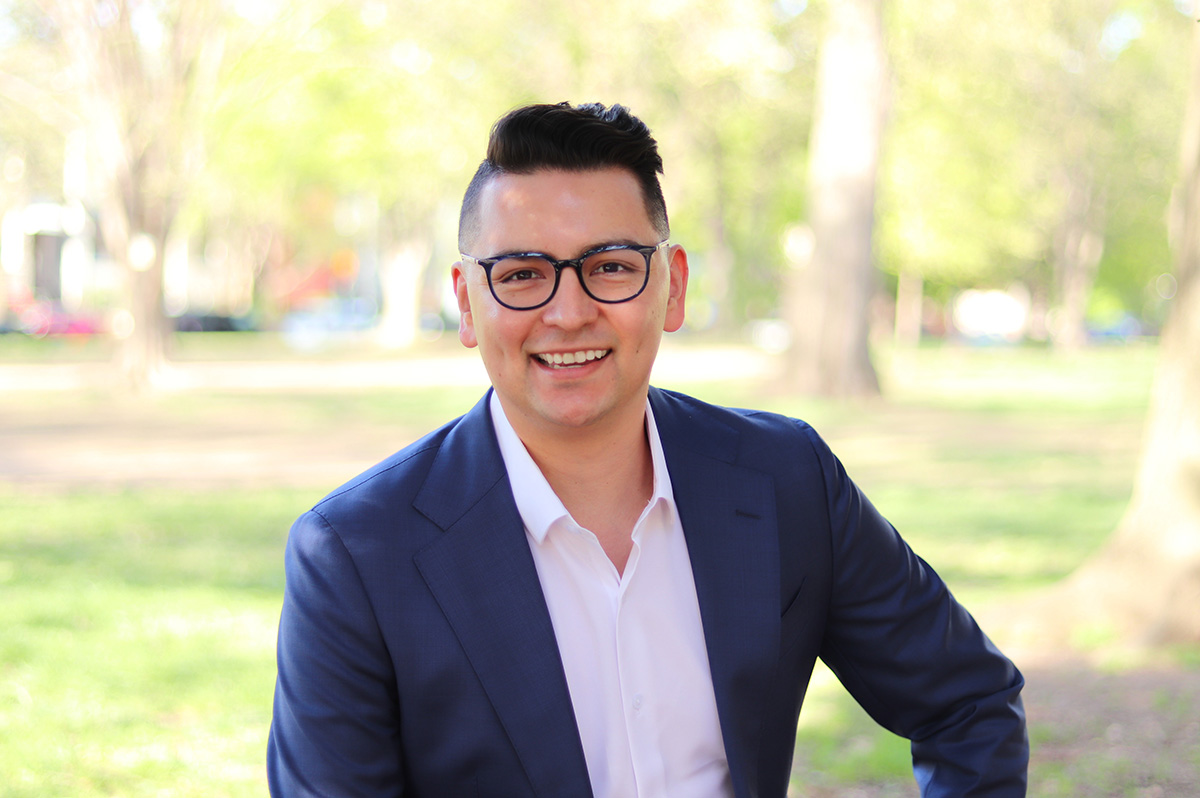
The Wanda Alston Foundation, the D.C.-based organization that has provided housing and support services for homeless LGBTQ youth since its founding in 2008, announced it has appointed longtime LGBTQ rights advocate Cesar Toledo as its new executive director.
In an April 22 statement, the organization said that as part of a planned leadership transition launched in November 2024, Toledo will succeed June Crenshaw, who Alston Foundation officials and LGBTQ community activists say has led the organization with distinction in her role as executive director for the past nine years.
In a statement released last November, the foundation announced Crenshaw was stepping down from her role as executive director after deciding to “to step into her next chapter.”
“June’s leadership has been truly transformative,” said Alston Foundation Board Chair Darrin Glymph in the group’s April 22 statement. “We are immensely grateful for her dedication and equally excited for the energy and experience that Cesar brings to lead us into this next chapter,” Glymph said.
“A seasoned LGBTQ+ advocate, Cesar brings over a decade of experience leading national campaigns, shaping public policy, and building inclusive communities,” the statement released by the group says. “Most recently, he served as the National LGBTQ+ Engagement Director for the Harris for President Campaign and has built a career focused on advancing equality and equitable education,” it says.
Biographical information about Toledo shows that immediately prior to working for the Harris For President Campaign, he served since April 2023 as deputy director for Democrats for Education Reform DC (DFER DC), a political group that helps to elect candidates for public office committed to quality education for all students, including minorities, people of color and LGBTQ youth.
Before joining DFER DC, Toledo served as political director for the LGBTQ+ Victory Fund, where he assisted in electing out LGBTQ candidates to all levels of public office across the U.S.
“I’m really excited about joining the Wanda Alston Foundation,” Toledo told the Washington Blade. “After a decade of working at the intersection of politics and policy and advancing political candidates and equitable education here in D.C., I wanted to shift my career to direct services to the most vulnerable folks in the LGBTQ+ family and our homeless youth,” he said.
Among other things, he said he would push for increasing the Alston Foundation’s visibility and mainlining its services for LGBTQ youth at a time when the national political climate has become less supportive.
A statement on its website says the Alston Foundation was founded in 2008 “in memory of Wanda Alston, a fierce LGBTQ+ activist, national advocate, and government official who was admired by District residents.”
The statement adds, “The foundation opened the first housing program in the nation’s capital in 2008 providing pre-independent transitional living and life-saving support services to LGBTQ+ youth.”
In a separate statement, the Alston Foundation announced it would hold a “thank you” celebration of appreciation for June Crenshaw from 6-8 p.m. on May 20 at Crush Dance Bar located at 2007 14th Street, N.W. in D.C.
“Let’s come together to celebrate her dedication and commitment for everything she has done for the LGBTQIA homeless youth population,” the statement says.
Virginia
Gay talk show host wins GOP nom for Va. lieutenant guv
John Reid becomes first out gay nominee for statewide office in state
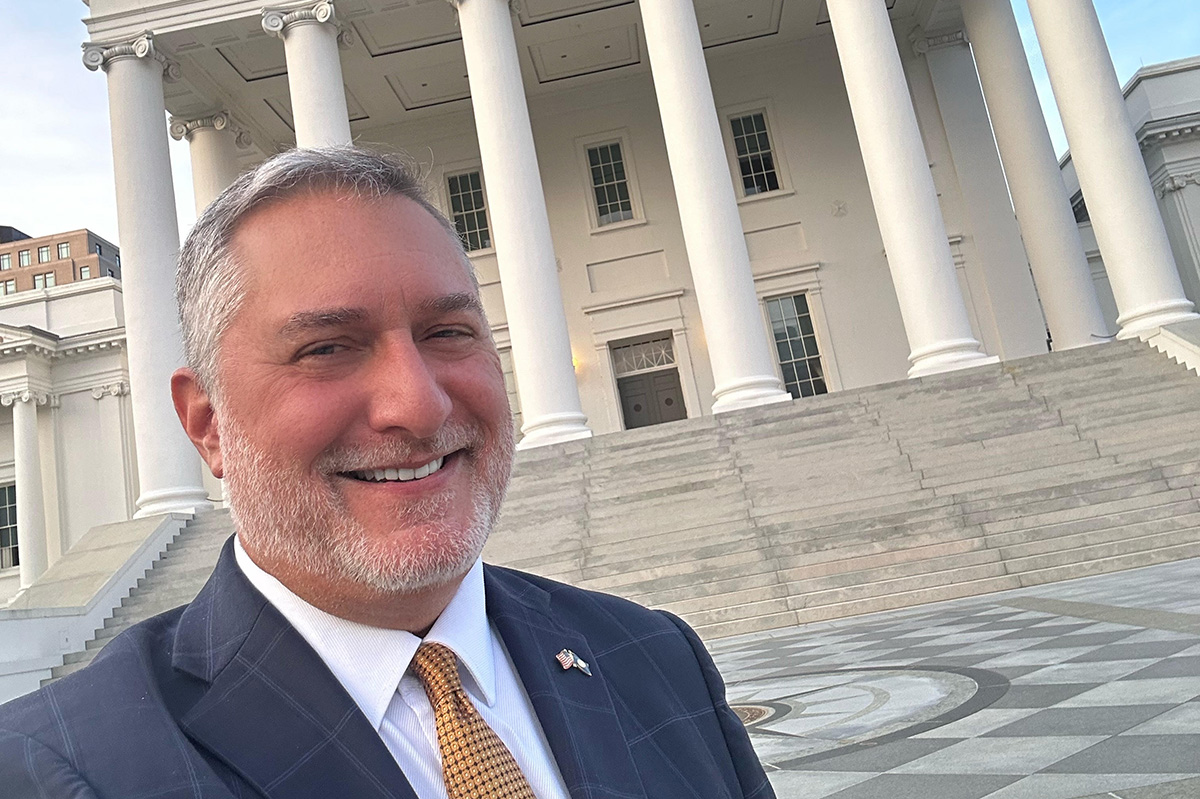
John Reid, a conservative gay radio talk show host in Richmond for many years, this week secured the Republican nomination for the office of lieutenant governor in Virginia, becoming the first known openly gay person to be nominated for a statewide office in that state.
Reid secured the nomination after his only rival in the Republican primary, Fairfax County Supervisor Pat Herrity, dropped out of the race this week for health reasons.
Herrity’s decision to withdraw from the race finalized the GOP nominees for Virginia’s three statewide contests in the November general election in what political observers are calling an unusually diverse GOP slate.
Current Virginia Lt. Gov. Winsome Earle-Sears, a Black woman, captured the GOP nomination for governor without a GOP opponent. Jason S. Miyares, a Hispanic man, is running for re-election as Virginia attorney general without a GOP rival. And Reid, a gay man, is the GOP nominee for lieutenant governor.
Reid will face one of six Democratic candidates for lieutenant governor who are competing in the June 17 Democratic primary.
The Blade spoke with Reid on Tuesday. Below is a partial transcript of that interview.
Blade: Is there a message you have for LGBTQ voters in Virginia, including Democrats, for why you think they should vote for you?
Reid: Well, the thing that I would say to gay voters who are looking and examining the candidates, is that I was out of the closet as a gay Republican publicly in very difficult rooms where people weren’t accepting of gay men – long before Donald Trump said I don’t care about this stuff.
And long before polite society said this was OK. So, in the ‘90s I came out on television and said on Oct. 11 – it was on National Coming Out Day. It was probably in 1996 or 1997. I started at the TV station in 1994. So, it was a couple of years into it.
I came out and said you never know your news anchor could be gay on National Coming Out Day. And everyone was appalled. How can you say this? You’re not supposed to say something like that. So even though I’m a Republican I know some people in the LGBT community are reflexively hostile to Republicans.
I took that step in public, and I think I helped change a lot of minds within the Republican Party and within central Virginia, which continues to be a pretty conservative place by being true to who I am. I spoke out in meetings around Republican staff and legislators and said I think we are not doing the right thing by being hostile to gay marriage.
We talk about the importance of family – Republicans talk about the importance of family, the importance of marriage as a fundamental building block of society. And a gay marriage is a net positive. Is it biblical to people who are following traditional Christian theology? No. But is it good for our society to have people in committed relationships? I think yes.
When we were going through the debate over gays in the military I said I see no reason that someone who is qualified to be in the military and can meet every single standard that everyone else is asked to meet, why should they not be in the Naval Academy, the Air Force Academy, West Point? Or serving as a grunt in active duty. Why would we exclude those people?
And those were very unpopular positions within the Republican Party.
Blade: Your campaign website says you have supported civil unions for same-sex couples. I could have missed seeing it, but I didn’t see an expression of support for gay marriage. Are you saying now that you support full same-sex marriage?
Reid: You know, you’re right. There is a distinction. And I think marriage is completely legitimate. Civil unions – if you want to go and sign paperwork at the courthouse – that’s great. If you want to be married and if a church wants to marry you if you find a church and religious leader and group that wants to bless that – that’s what I hope to do with my partner now.
Sometime in the near future I hope we will be married. And it’s very important to me as a Christian to be married in a church. So, that’s interesting. Most people would not draw that distinction. I appreciate that you’re drawing a distinction. I’m supportive of both.
Blade: Did you say you worked for a member of Congress? Can you say who that was?
Reid: George Allen, the senator from Virginia. And, of course, you and I – I know you’ve covered so many stories like this that you’ve brought together. But it was a very difficult position. When I started with Sen. Allen, he had a very libertarian attitude about this. The [Virginia State] constitutional amendment was not necessary. There was no need to go down that road.
And of course President Bush – George W. – was very assertive during the 2004 campaign. And then the issue continued to bubble up and you know we wound up with this amendment in the Virginia Constitution that banned gay marriage until the Supreme Court decision. And I was not supportive of that. And I voted for my boss, my senator, who I respected and still do respect.
Blade: Your website shows that your support for the gay community does not extend to the transgender community.
Reid: Yeah, I hate this. But I do think that our current focus on trans issues is where the gay rights movement has jumped the shark. And I think we’re losing support that we worked very diligently for decades to build with the average person. And I’m puzzled that the former leaders of the Human Rights Campaign had presidents when Elizabeth Birch and others – I don’t know what their stance is today.
I do recall that all of us who talked about gay rights issues focused on normalcy and that we would meet every standard that everyone else met. That all the vile things that were said about gays being pedophiles and grooming children – that simply was not true.
And I think we have stumbled into a very unfortunate and dangerous territory where we’re almost taunting the average person with an insistence that they accept drag queen story hour and the provocative books and provocative media that the average person would say, ‘You told us you were normal. – quote unquote normal – and now you are peddling an agenda which we don’t agree with and you’re being really aggressive about it.
And that’s really a difference. I know you’ve been covering it for a long time. I don’t know if you agree with this. I think we are peddling a very different political agenda today than the gay community was 20 years ago. And I think we should restrain ourselves and be cautious about that. And I think we’re in dangerous territory with the general population. And I’d urge caution about that.
Blade: Online reports show that there are as many as six Democratic candidates competing for the lieutenant governor’s position in the June 17 Democratic primary. Do you know any of them?
Reid: I’m familiar with most of them. Some are from the Richmond area. And I believe they are all very supportive of gay rights, which is I think a good thing. My reason for challenging them as a Republican – and I think there are other places where there is a lack of appropriate leadership and good judgment. And so, I don’t expect the gay issue would be a real issue. The trans issue may be a point of contention in the race.
But I don’t think the gay issue – and I do draw a distinction between the two — I don’t think that will be a real dividing line with those Democrat[ic] candidates.
Blade: So unlike when you were a TV news anchor, on your radio talk show were you able to offer more opinions and commentary?
Reid: That’s correct. There was a lot of opining, no script. So, I was able to tell stories about how I traveled to Miami, and I went to Washington. I went to the Kennedy Center and shared some of my life and lifestyle as appropriate with the audience.
Blade: Well, thank you for this interview.
Reid: I’m happy to talk to you. One of the reasons I called you back is that the political consultants have always told me don’t talk to anybody that might disagree with you. And I reject that. I have already lived 30 years as an out gay man. And it has been very difficult. And I would like to make it easier for the next generation to live their authentic selves. … Calling you and talking to you against the advice of all these people who say never do that, I’m hopeful that my willingness to engage and be candid will ultimately be well received, I hope.
District of Columbia
New DC LGBTQ Center to celebrate grand opening
Permanent location in Shaw debuts with Saturday celebration
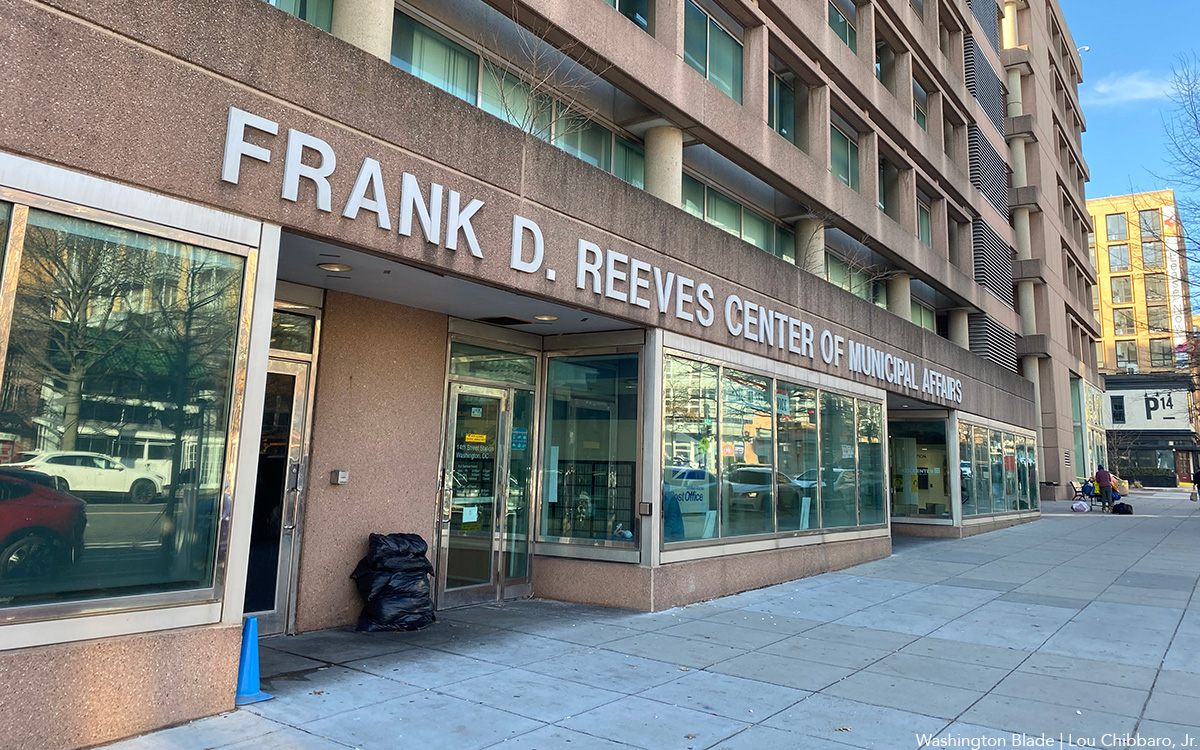
After more than 20 months of demolition, construction, and development, Washington finally has a brand new LGBTQ Center. On Saturday, April 26, the doors will officially open at the DC LGBTQ Center for the first time following the groundbreaking in June 2023.
The new DC LGBTQ Center, located one block from the Shaw Metro station, aims to educate, empower, uplift and celebrate Washington’s LGBTQ community. Spanning 6,671 square feet of intentionally designed space, the center will offer a wide range of resources for LGBTQ individuals in need – including mental health services, job readiness programs, cultural events and community support groups, all under one roof.
The space, located in The Adora building at 1828 Wiltberger St, N.W., has a food pantry, STD and HIV testing space, therapy room, boutique with a clothing closet, an ADA-accessible shower, a mailroom to help those without an address receive mail, and a large kitchen.
The new DC LGBTQ Center will also house office space for nine local LGBTQ organizations. Groups like SMYAL, which supports and uplifts LGBTQ youth, and the Wanda Alston Foundation, which provides transitional housing and support services for homeless or at-risk LGBTQ youth, are central to the center’s mission: to educate, empower, uplift, celebrate, elevate and connect Washington’s LGBTQ community. The center will also become the new home of the Capital Pride Alliance, the organization behind Capital Pride and this year’s WorldPride celebration.
The Reeves Center, the former home of the DC LGBTQ Center, is slated for redevelopment. Located at 14th and U streets, N.W., the building is expected to become a mixed-use hub featuring the NAACP’s national headquarters, a hotel, restaurant, comedy club, housing and more.
On Saturday, the new DC LGBTQ Center will celebrate its grand opening with a full day of events designed to showcase the space’s potential and mark its long-awaited return. The “Friends & Family Day” celebration begins with a brunch at 10 a.m., followed by an open house featuring tours, team introductions, and a look at how the center came to life. The day concludes with a “Honey, I’m Home” cocktail celebration at 5 p.m.
Some events are open to the public, while others, such as the brunch, require an RSVP. To RSVP, visit this link or email [email protected] with any questions.



